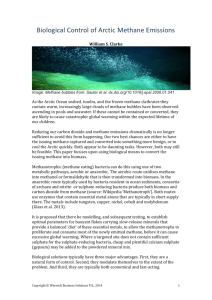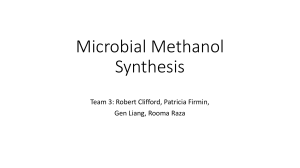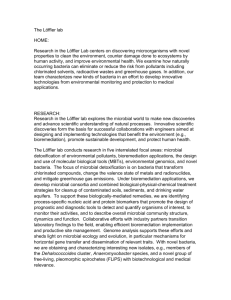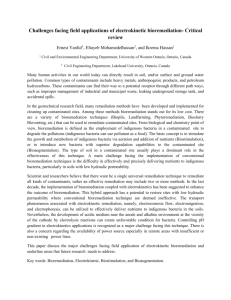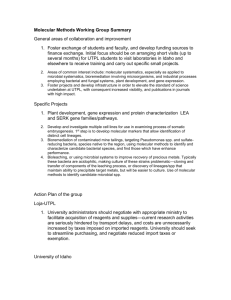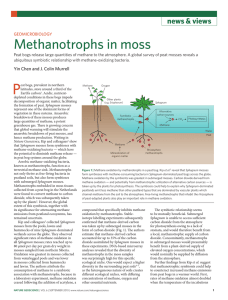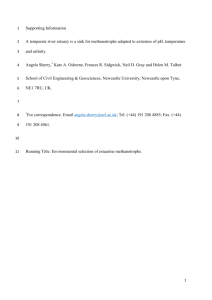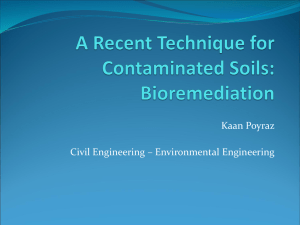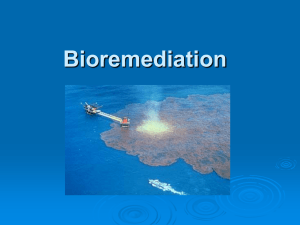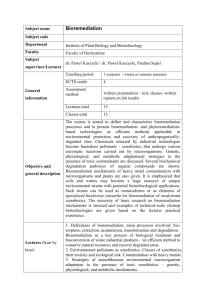DOC
advertisement
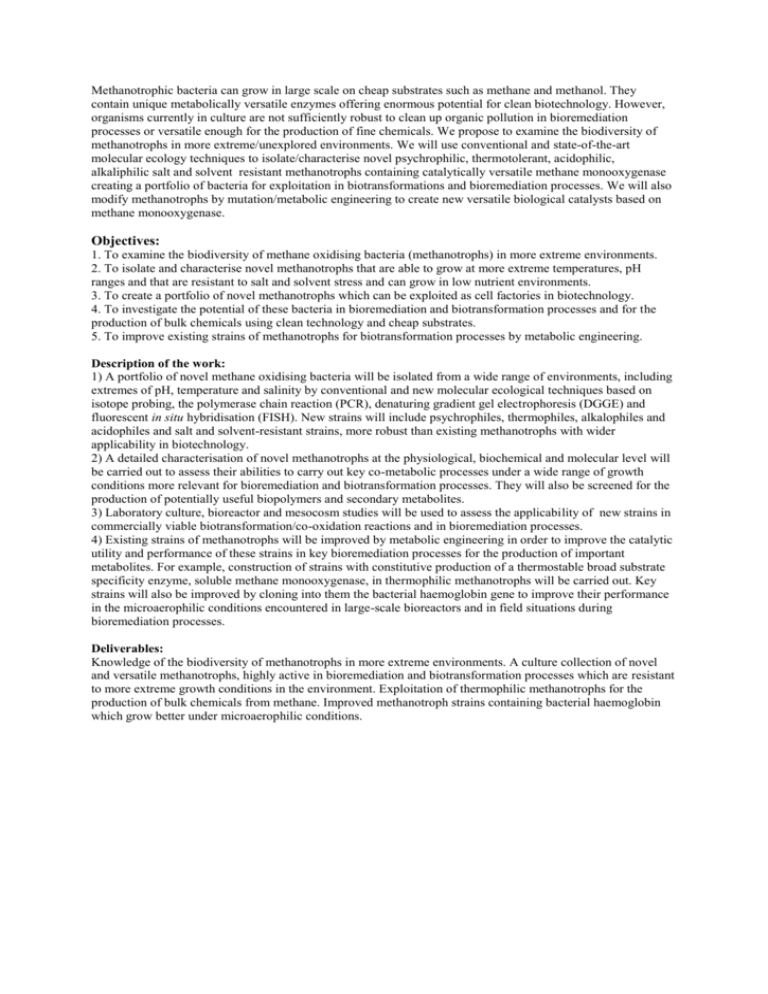
Methanotrophic bacteria can grow in large scale on cheap substrates such as methane and methanol. They contain unique metabolically versatile enzymes offering enormous potential for clean biotechnology. However, organisms currently in culture are not sufficiently robust to clean up organic pollution in bioremediation processes or versatile enough for the production of fine chemicals. We propose to examine the biodiversity of methanotrophs in more extreme/unexplored environments. We will use conventional and state-of-the-art molecular ecology techniques to isolate/characterise novel psychrophilic, thermotolerant, acidophilic, alkaliphilic salt and solvent resistant methanotrophs containing catalytically versatile methane monooxygenase creating a portfolio of bacteria for exploitation in biotransformations and bioremediation processes. We will also modify methanotrophs by mutation/metabolic engineering to create new versatile biological catalysts based on methane monooxygenase. Objectives: 1. To examine the biodiversity of methane oxidising bacteria (methanotrophs) in more extreme environments. 2. To isolate and characterise novel methanotrophs that are able to grow at more extreme temperatures, pH ranges and that are resistant to salt and solvent stress and can grow in low nutrient environments. 3. To create a portfolio of novel methanotrophs which can be exploited as cell factories in biotechnology. 4. To investigate the potential of these bacteria in bioremediation and biotransformation processes and for the production of bulk chemicals using clean technology and cheap substrates. 5. To improve existing strains of methanotrophs for biotransformation processes by metabolic engineering. Description of the work: 1) A portfolio of novel methane oxidising bacteria will be isolated from a wide range of environments, including extremes of pH, temperature and salinity by conventional and new molecular ecological techniques based on isotope probing, the polymerase chain reaction (PCR), denaturing gradient gel electrophoresis (DGGE) and fluorescent in situ hybridisation (FISH). New strains will include psychrophiles, thermophiles, alkalophiles and acidophiles and salt and solvent-resistant strains, more robust than existing methanotrophs with wider applicability in biotechnology. 2) A detailed characterisation of novel methanotrophs at the physiological, biochemical and molecular level will be carried out to assess their abilities to carry out key co-metabolic processes under a wide range of growth conditions more relevant for bioremediation and biotransformation processes. They will also be screened for the production of potentially useful biopolymers and secondary metabolites. 3) Laboratory culture, bioreactor and mesocosm studies will be used to assess the applicability of new strains in commercially viable biotransformation/co-oxidation reactions and in bioremediation processes. 4) Existing strains of methanotrophs will be improved by metabolic engineering in order to improve the catalytic utility and performance of these strains in key bioremediation processes for the production of important metabolites. For example, construction of strains with constitutive production of a thermostable broad substrate specificity enzyme, soluble methane monooxygenase, in thermophilic methanotrophs will be carried out. Key strains will also be improved by cloning into them the bacterial haemoglobin gene to improve their performance in the microaerophilic conditions encountered in large-scale bioreactors and in field situations during bioremediation processes. Deliverables: Knowledge of the biodiversity of methanotrophs in more extreme environments. A culture collection of novel and versatile methanotrophs, highly active in bioremediation and biotransformation processes which are resistant to more extreme growth conditions in the environment. Exploitation of thermophilic methanotrophs for the production of bulk chemicals from methane. Improved methanotroph strains containing bacterial haemoglobin which grow better under microaerophilic conditions.
